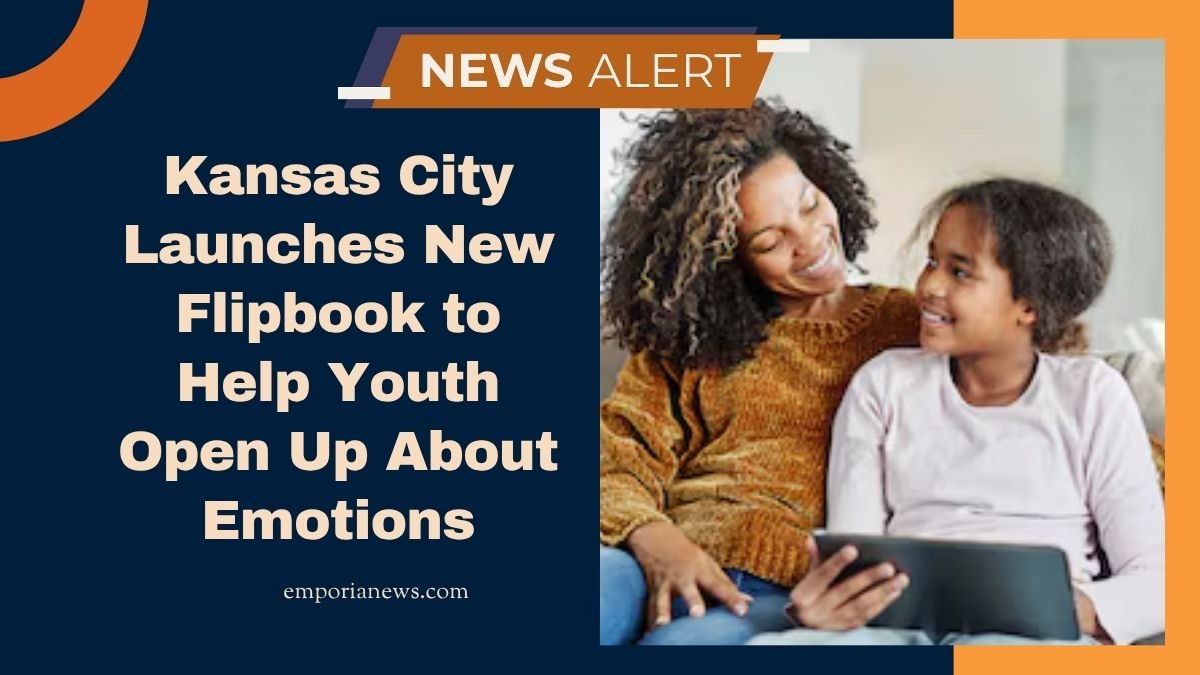In a bold move to support emotional wellness among young people, a Kansas City nonprofit recently launched a new tool: the “Big Feelings, Smart Choices” flipbook.
This trauma‑informed flipbook is designed to help youth learn how to communicate feelings, process Adverse Childhood Experiences (ACEs), and develop healthy emotional regulation skills.
The initiative comes under the umbrella of Reconciliation Services’ Foster Grandparent Program, targeting students across Jackson, Clay, and Platte counties.
Background & Purpose
What is the Flipbook?
The “Big Feelings, Smart Choices” flipbook is a colorful, durable, easy-to-use guide intended for use by Foster Grandparents and mentors to help youth learn to name, explore, and discuss emotions. It is trauma-informed, meaning it’s built with an awareness of how Adverse Childhood Experiences (ACEs) can influence emotional development. The flipbook is meant to be a conversational tool rather than a textbook.
Why This Tool Matters
Emotional literacy is often underemphasized in school curricula, yet the ability to label emotions, self-regulate, and speak about one’s inner world is central to mental health, resilience, conflict resolution, and reducing future violence. One of the program leaders observed that violent crimes often stem from arguments, which in turn originate from unregulated anger; teaching children how to navigate such feelings might reduce that cycle over time.
LaKiesha (LaKeshia) Cotton, M.Ed., founder of KCWest & Associates, emphasized that emotional regulation is a skill for people of all ages, not just children.
Key Facts, Figures & Implementation
Below is a table summarizing the important details of the flipbook program:
| Aspect | Detail / Figure |
|---|---|
| Name of Tool | Big Feelings, Smart Choices flipbook |
| Nature | Trauma‑informed, emotion communication resource |
| Implementing Body | Reconciliation Services’ Foster Grandparent Program |
| Geographic Scope | Jackson, Clay, Platte counties in Kansas City metro |
| Number of Grandparents Involved | Over 70 grandparents |
| Number of Students Served | 350+ students |
| Number of Schools | ~30 schools |
| Funding / Grant | $21,000 grant awarded by Gould Charitable Foundation |
| Targeted Issues | Emotional communication, ACEs awareness, anger management |
| Organizational Mission | Reconciliation Services works on social services, mental health, economic development, and transforming Troost Avenue into a community gathering place |
Implementation Strategy
- The flipbooks are distributed to and used by the Foster Grandparents, seniors recruited to mentor youth in schools, hospitals, and courts.
- These grandparents receive training, orientation, and monthly support to use the flipbook tools effectively.
- The flipbook is used in classrooms, counseling spaces, and informal settings, prompting guided dialogues with youth about their feelings, triggers, coping strategies, and choices.
- The program is designed to generate a ripple effect: not only teaching children, but through them reaching families, communities, and future generations.
Voices from the Program
- Ashley Morgan, Program Manager for the Foster Grandparent Program, expressed hope that the flipbook will influence intergenerational change and help reduce community violence by shifting how young people respond to anger.
- LaKeshia Cotton, M.Ed. noted that emotional regulation is not just for children: the skills are equally relevant for mentors, adults, and caregivers.
These testimonials underscore that the flipbook is not a passive handout, but part of relational work and community healing.
Expected Impact & Challenges
Positive Outcomes Anticipated
- Increased emotional vocabulary and willingness among youth to articulate feelings
- Reduced frequency and escalation of conflict or outbursts
- Improved mental health, resilience, and self-awareness
- A downstream reduction in violence as emotional coping improves
- Strengthening of mentor-youth relationships and trust
Potential Challenges
- Consistency: ensuring all 70+ grandparents reliably use the flipbook
- Training: maintaining strong facilitation skills
- Measureable metrics: quantifying emotional change and downstream behavioral effects
- Scaling: expanding beyond 30 schools while maintaining quality
- Emotional burden: guiding youth through heavy emotional topics requires support for the mentors themselves
The launch of the “Big Feelings, Smart Choices” flipbook by Reconciliation Services in Kansas City marks an innovative stride in youth mental health and emotional literacy.
Through distribution to over 70 Foster Grandparents working across 30 schools and serving more than 350 students, this initiative seeks to normalize conversations about feelings, equip children (and adults) with emotional regulation skills, and ultimately reduce conflict and violence in the community.
FAQs
Who exactly uses the flipbook with kids?
How is the flipbook funded?
What kinds of emotional skills does the flipbook teach?
It teaches youth to name, reflect upon, and communicate emotions, explore coping strategies, understand triggers, and make “smart choices” about responses—all grounded in trauma-informed principles and awareness of Adverse Childhood Experiences (ACEs).




